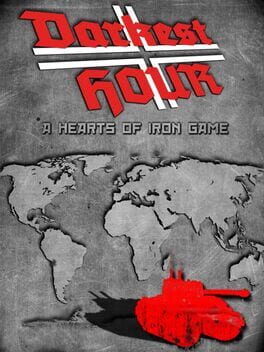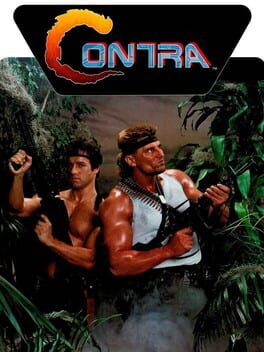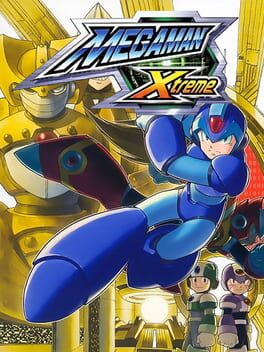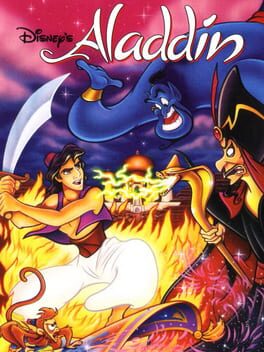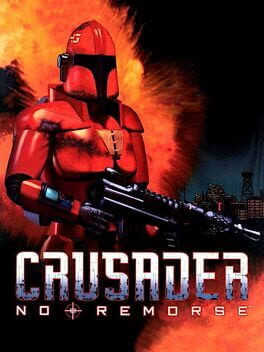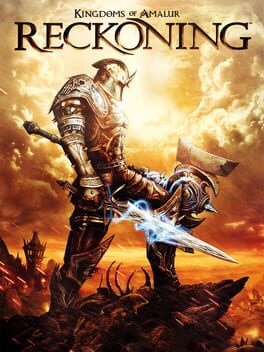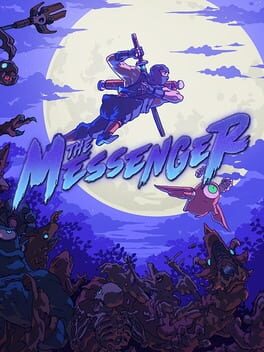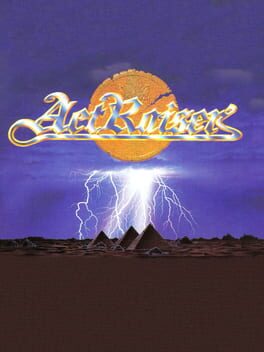MegaDriver69
I respect the passion for history, but the game can be mighty dull, unlike the tumultuous times it's simulating. Long stretches of waiting for number to go up. Repetitive, monotonous gameplay loops. Surprisingly limited bureaucratic, diplomatic, and economic options. Lacking menus that make organizing your military Corps more time consuming than it should be. The game over relies on scripted events to maintain historicity rather than more natural process through its own player-interactable systems.
Try playing a historically accurate isolationist USA, and marvel how little there is to do. It has some highs (the division customization, the campaigns on a strategic scale), but is anchored by LONG stretches of utter boredom, inactivity, and rigidity.
I genuinely want to regard Darkest Hour better, but it's underwhelming. Compared to other Grand Strategy games there's too much downtime, constrained decision making, and little spontaneity.
Try playing a historically accurate isolationist USA, and marvel how little there is to do. It has some highs (the division customization, the campaigns on a strategic scale), but is anchored by LONG stretches of utter boredom, inactivity, and rigidity.
I genuinely want to regard Darkest Hour better, but it's underwhelming. Compared to other Grand Strategy games there's too much downtime, constrained decision making, and little spontaneity.
2001
Mother of God, you changed the cover art from the beautiful, hand painting by the director of Ico himself, to the North American abomination. What the hell is wrong with you backloggd?
Please bring back Ueda's painting https://i.imgur.com/azarEXL.jpg
Please bring back Ueda's painting https://i.imgur.com/azarEXL.jpg
1987
2012
2000
An admirable attempt to port a 16-bit home console game to an 8-bit handheld. While largely successful, I can't think of a single reason to play Cyber Mission -- or XTREME as it is called in the West (no doubt the localiser gushing over the brilliance of his pun). It's through & through, a watered down Rockman X; the novelty of it lost today when the original SNES game can be played on many modern mobile devices.
Perhaps if Cyber Mission tweaked the original games (X1 & X2) in some meaningful way there'd be a reason to play it. But nope, it's a pretty direct port. Levels are a bit shorter (likely to save memory), but the design is mostly identical. The only positive change I can think of is a slight change to a single, annoying jump from X2 for an upgrade.
The bosses, on the other hand, fair a bit worse. The development team seemingly accommodated for the reduced screen estate of the Game Boy compared to the SNES when recreating levels. The bosses not so much. Spark Mandriller, who was a comfy breeze in X1, is now one of the hardest bosses in the game. His proportions to X were kept intact, but the boss arena itself was shrunk to fit the smaller GB screen. This has an inverse effect on the final boss, Sigma, whose weakpoint is much easier to hit than before. The difficulty balancing is a little erratic.
The music can be grating at times, though a few tracks bop. Some slack should be given, but this is not something I recommend wearing headphones while playing.
I can't discern a reason why anyone should play this when the vastly superior X1 & X2 are just as easily accessible. Maybe if you're a diehard Rockman fan you'll find some merit in Cyber Mission's existence. It's a competent 8-bit conversion, but hardly a stand-out game from the franchise.
Perhaps if Cyber Mission tweaked the original games (X1 & X2) in some meaningful way there'd be a reason to play it. But nope, it's a pretty direct port. Levels are a bit shorter (likely to save memory), but the design is mostly identical. The only positive change I can think of is a slight change to a single, annoying jump from X2 for an upgrade.
The bosses, on the other hand, fair a bit worse. The development team seemingly accommodated for the reduced screen estate of the Game Boy compared to the SNES when recreating levels. The bosses not so much. Spark Mandriller, who was a comfy breeze in X1, is now one of the hardest bosses in the game. His proportions to X were kept intact, but the boss arena itself was shrunk to fit the smaller GB screen. This has an inverse effect on the final boss, Sigma, whose weakpoint is much easier to hit than before. The difficulty balancing is a little erratic.
The music can be grating at times, though a few tracks bop. Some slack should be given, but this is not something I recommend wearing headphones while playing.
I can't discern a reason why anyone should play this when the vastly superior X1 & X2 are just as easily accessible. Maybe if you're a diehard Rockman fan you'll find some merit in Cyber Mission's existence. It's a competent 8-bit conversion, but hardly a stand-out game from the franchise.
Rather than fix many of Dark Souls II's problems, Scholar doubles down on them. It turns vanilla DSII (which was already overloaded with lazy gankfests & ambushes) into some Kaizo Mario romhack. What were previously unremarkable areas such as Iron Keep are now among the worst in the series due to horrendous enemy spam.
New additions include greatly overleveled NPC phantoms whom invade your ass throughout the game, and slight changes to the lighting so insignificant it may as well be an ENB filter. What's not fixed are any of DSII's many, many laughably inaccurate hitboxes, incomplete level design, nor the hideous environments of repeating textures.
Disappointing rerelease. Rather than fix the original game's problems, this version amends some and creates others.
New additions include greatly overleveled NPC phantoms whom invade your ass throughout the game, and slight changes to the lighting so insignificant it may as well be an ENB filter. What's not fixed are any of DSII's many, many laughably inaccurate hitboxes, incomplete level design, nor the hideous environments of repeating textures.
Disappointing rerelease. Rather than fix the original game's problems, this version amends some and creates others.
1993
Shame such a spectacular looking game is underwhelming to play.
With Aladdin's animators themselves providing the development team with reference material, the spritework and environments are faithful to the film. Likewise the music itself is a decent translation of the film's soundtrack onto an FM soundchip. Some witty gags, some background quips. You can tell an effort was made to match Aladdin as identically as possible to the film on 16-bit hardware, as well as inject some of the developer's own charm.
The gameplay itself, however, isn't of the same calibre. Standard platforming with questionable hitboxes and an ill-positioned camera. One of the later stages is brimming with instakills, doubtlessly a way to combat the video game rental market. Overall much more appreciable as a technical marvel than something to play.
With Aladdin's animators themselves providing the development team with reference material, the spritework and environments are faithful to the film. Likewise the music itself is a decent translation of the film's soundtrack onto an FM soundchip. Some witty gags, some background quips. You can tell an effort was made to match Aladdin as identically as possible to the film on 16-bit hardware, as well as inject some of the developer's own charm.
The gameplay itself, however, isn't of the same calibre. Standard platforming with questionable hitboxes and an ill-positioned camera. One of the later stages is brimming with instakills, doubtlessly a way to combat the video game rental market. Overall much more appreciable as a technical marvel than something to play.
1995
It's a shooter from 1995 that prioritized graphics to the point where the engine couldn't perform auto scrolling.
Other critical features it lacks? Functioning collision detection. I've never seen rubber banding in a single-player game, but here we are.
After you familiarise yourself with the unorthodox control scheme, whatever merits Crusader has are overshadowed by how utterly dysfunctional it is.
Other critical features it lacks? Functioning collision detection. I've never seen rubber banding in a single-player game, but here we are.
After you familiarise yourself with the unorthodox control scheme, whatever merits Crusader has are overshadowed by how utterly dysfunctional it is.
Breath of the Wild is a game I absolutely adore the direction of. I will sing nothing but praises for its ideas, for its impact on the gaming landscape, for rejuvenating a franchise that had long past worn out its formula. But... I feel Breath of the Wild is reputed at a surface level. People praise what it is, rather than how it is.
The first 5 to 10-hours of BotW are magical. Open-world games have long since been content to copy-paste the same 5 activities across the whole map, with the most surface-level gameplay imaginable (the Ubisoft standard). Breath of the Wild eschews this by making the moment to moment gameplay of interacting with the world itself engaging. When you set a patch of grass ablaze the first time, you wonder why every game doesn't work this way. Why every game doesn't have a robust, believable chemistry system. Why almost every game only uses complicated physics for show, rather than gameplay possibilities like BotW. Why every game isn't this open. It's in those first hours that Breath of the Wild genuinely feels like a masterpiece.
But then those 10-hours come and pass. Another 10 are added. Then another 10. It wasn't until 50-hours in, after completing all content related to the main story, I tackled Ganon. During the time (somewhere 10 to 20-hours in) BotW transitioned from a breath of fresh air to a complete drag. After enough playtime, one learns the inner workings of the mechanics. One has ample equipment to tackle any challenge the game affords. Too cold? Put on your winter gear. A storm? Unequip your metal weapons so you don't get blasted by lighting. What was once novel & interesting becomes trite, more of the same. At that point what is one left with?
A boring, underdeveloped world. Where most of the notable content is shrines, the most uninspired thing that could fill the land. Where biomes, rather than have their own bespoke enemy types, use the same palette swapped pool of enemies from the other side of the map. Where even the main quest reuses the same general structure 4-times.
Link walks into place with environmental hazard. Meets ancestor of long-dead warrior. Completes quest to prove he's worthy. Assault sequence with ancestor. Rummages through divine beast. Get power-up. Done. Repeat 3-more times. That is the main quest of Breath of the Wild.
Ultimately, after the novelty and beauty of BotW's mechanical and chemistry systems wear off, you're left with a world bereft of wanderlust. Where you don't want to explore those mountains, because you already know what awaits. The same that was in the coppices. The same that was in the marshlands. The same handful of enemy types. The same simple puzzle shrines. Long stretches of vaguely similar content, to the point where the monotony borders on insanity. It all blends together after a while, because there's too little too few distinguishable traits strewn about. It's all the same.
Here's hoping BotW 2 takes the excellent framework established here and becomes the masterpiece I wish BotW 1 was.
The first 5 to 10-hours of BotW are magical. Open-world games have long since been content to copy-paste the same 5 activities across the whole map, with the most surface-level gameplay imaginable (the Ubisoft standard). Breath of the Wild eschews this by making the moment to moment gameplay of interacting with the world itself engaging. When you set a patch of grass ablaze the first time, you wonder why every game doesn't work this way. Why every game doesn't have a robust, believable chemistry system. Why almost every game only uses complicated physics for show, rather than gameplay possibilities like BotW. Why every game isn't this open. It's in those first hours that Breath of the Wild genuinely feels like a masterpiece.
But then those 10-hours come and pass. Another 10 are added. Then another 10. It wasn't until 50-hours in, after completing all content related to the main story, I tackled Ganon. During the time (somewhere 10 to 20-hours in) BotW transitioned from a breath of fresh air to a complete drag. After enough playtime, one learns the inner workings of the mechanics. One has ample equipment to tackle any challenge the game affords. Too cold? Put on your winter gear. A storm? Unequip your metal weapons so you don't get blasted by lighting. What was once novel & interesting becomes trite, more of the same. At that point what is one left with?
A boring, underdeveloped world. Where most of the notable content is shrines, the most uninspired thing that could fill the land. Where biomes, rather than have their own bespoke enemy types, use the same palette swapped pool of enemies from the other side of the map. Where even the main quest reuses the same general structure 4-times.
Link walks into place with environmental hazard. Meets ancestor of long-dead warrior. Completes quest to prove he's worthy. Assault sequence with ancestor. Rummages through divine beast. Get power-up. Done. Repeat 3-more times. That is the main quest of Breath of the Wild.
Ultimately, after the novelty and beauty of BotW's mechanical and chemistry systems wear off, you're left with a world bereft of wanderlust. Where you don't want to explore those mountains, because you already know what awaits. The same that was in the coppices. The same that was in the marshlands. The same handful of enemy types. The same simple puzzle shrines. Long stretches of vaguely similar content, to the point where the monotony borders on insanity. It all blends together after a while, because there's too little too few distinguishable traits strewn about. It's all the same.
Here's hoping BotW 2 takes the excellent framework established here and becomes the masterpiece I wish BotW 1 was.
What happens when a retired MLB Pitcher uses his career savings to start a video game development studio? A story more interesting than the game itself.
Directly after retiring, avid World of Warcraft player Curt Schilling wanted to make his own MMO. Using his own funds in combination with a $75-million USD loan from the state of Rhode Island, 38 Studios was born. With an all-star cast of R.A. Salvatore, Todd McFarlane, Grant Kirkhope, & Ken Rolsten, the team began their work on their newest MMORPG. 38 Studios was eventually forced to scale back their premier ambition to a single-player RPG. Despite the change in priorities, Kingdom's of Amalur: Reckoning would sell over 1-million copies!... it needed to sell 3-million to break even. Unable to pay their debts (at one point an anonymous personal check was used to settle a company loan), 38 Studios filed for bankruptcy after only one game. Rhode Island was left with $75-million in debt. Schilling, bereft of his life-savings, left to go rant on TV shows about much he hates the gays and what not.
As much as I'd like to report Amalur was a gem of a passion project unfortunately doomed to fail, it's a pretty generic, monotonous game. Many notable talents worked on it, but there's an overall lack of focus. Everyone all did their work, tossed in their ideas, but no one moulded them into a cohesive vision. The original intent to create an MMO shows with how massive but sparsely populated expanses are with meaningful content. It's a protracted, boring, save-the-world from some evil on the other side of the world affair clearly aping other (better) games.
You'll find more entertainment watching a documentary on how Amalur was made than actually playing it.
Directly after retiring, avid World of Warcraft player Curt Schilling wanted to make his own MMO. Using his own funds in combination with a $75-million USD loan from the state of Rhode Island, 38 Studios was born. With an all-star cast of R.A. Salvatore, Todd McFarlane, Grant Kirkhope, & Ken Rolsten, the team began their work on their newest MMORPG. 38 Studios was eventually forced to scale back their premier ambition to a single-player RPG. Despite the change in priorities, Kingdom's of Amalur: Reckoning would sell over 1-million copies!... it needed to sell 3-million to break even. Unable to pay their debts (at one point an anonymous personal check was used to settle a company loan), 38 Studios filed for bankruptcy after only one game. Rhode Island was left with $75-million in debt. Schilling, bereft of his life-savings, left to go rant on TV shows about much he hates the gays and what not.
As much as I'd like to report Amalur was a gem of a passion project unfortunately doomed to fail, it's a pretty generic, monotonous game. Many notable talents worked on it, but there's an overall lack of focus. Everyone all did their work, tossed in their ideas, but no one moulded them into a cohesive vision. The original intent to create an MMO shows with how massive but sparsely populated expanses are with meaningful content. It's a protracted, boring, save-the-world from some evil on the other side of the world affair clearly aping other (better) games.
You'll find more entertainment watching a documentary on how Amalur was made than actually playing it.
2018
Lazy remaster that botches the lighting so gravely the original looks better in some areas. On the plus side it runs at double the original's framerate natively, and some (but not all) bugs & exploits have been fixed. It's all-around a very perfunctory effort, doing the bare minimum to port the game from the 7th to 8th-gen consoles.
It's still Dark Souls, but don't rush to buy this version if you already own the original.
It's still Dark Souls, but don't rush to buy this version if you already own the original.
1990
2020
